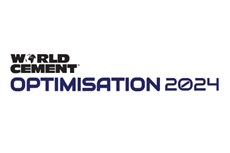Forget failure
Published by David Bizley,
Editor
World Cement,
Bearing failures can be costly, disruptive and, in some cases, dangerous. Chris Ager, Bowman International, considers three of the main reasons for bearing failure in high-load environments and explains how these issues can be prevented.
There are three main reasons for bearing failure: bearing fatigue, poor maintenance practices and the incorrect choice of bearing material. In high-load applications, these potential points of failure are amplified, but addressing them during the specification process could help prevent designers and decision-making engineers from running into any problems. In doing so, many facilities can harness untapped performance, time and cost efficiencies that they were previously unaware of.
Across many sectors, machinery is working harder and longer than ever before, so when it comes to bearing selection, be it a standard catalogue item or a special order, customers are becoming more reliant on their suppliers taking responsibility for supporting the specification process. This partnership approach facilitates accurate product selection – and this is where it pays to partner with a manufacturer that has proven experience and expertise.
Bearing fatigue
First and foremost, it is vital to select the right bearing for the application in question to prevent premature bearing fatigue. There are many types of bearing to choose from, including plain, spherical, needle, ball and split roller bearings to name but a few. Each of these bearing categories has many variations within it, such as sintered, wrapped, composite or machined, and then there are sizes, seals, lubrication and performance enhancing extras to consider.
With so much to think about, it is fair to say that there is more to specifying the right bearing than just navigating the over-arching product type. Each variable will affect the bearing performance depending on the application, and working with a knowledgeable supply partner is the right way to ensure that the precise bearing is chosen for the correct application.
The majority of customers know exactly what their bearing needs to do. They know the load, speed and environmental requirements that will reduce fatigue, but need advice on what type of bearing can deliver these capabilities most efficiently, and at the right cost.
Selecting the right bearing will influence not just the initial purchase cost, but potentially other factors including the cost of ongoing maintenance, lifespan of the bearing and even how efficiently the equipment works. Often, when working closely with a bearing manufacturer, customers realise there are clear benefits to switching to an alternative bearing type, from the one style they have been specifying to date.
The Bowman Advanced Split Roller Bearing, for example, is specifically designed for high load applications and can improve performance and drive cost efficiencies compared to solid bearings for systems with high radial and axial load requirements. In fact, this bearing offers up to 75% higher radial load capacity and up to a 1000% increase in axial load capacity compared to other split bearings.
This is really where a whole-market manufacturer and supplier, not restricted to any single type of bearing, can add real value through independent advice.
Read the article online at: https://www.worldcement.com/special-reports/22112021/forget-failure/
You might also like
Rohrdorfer starts ethylene production from carbon dioxide
Following a test phase, production is to be scaled up to an industrial scale, thereby establishing a seamless CO2 circular economy.


